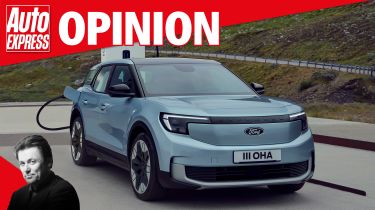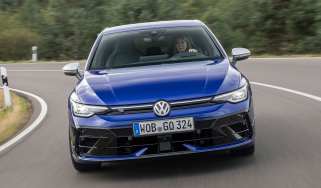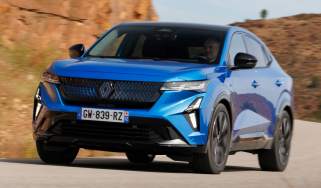“Some manufacturers are losing their appetite for electric cars”
With EV market share shrinking, Mike Rutherford thinks there might be delays to the proposed 2035 ban on the sale of new petrol and diesel cars

There’s no getting away from the fact that the latest, drastically modified proposals from our here-today, gone-tomorrow political ‘leaders’ say that they’ll expunge pure-petrol and pure-diesel cars from UK showrooms in 2035. But will they? Might there be further delays to this ban on combustion engines?
I’m not saying there definitely will be another stay of execution, but I wouldn’t bet against it either. Especially when the current Conservative Government, the instigator of the 2035 internal-combustion deadline, is likely to be booted out before the end of the year. And the Labour regime that’s on course to replace it has already dumped its promised £28billion spending on a ‘green investment’ pledge that was supposed to pay for things like gigafactories to help power electric cars. Or maybe not.
Also true is that some manufacturers and countless private, business and fleet buyers seem to be losing their appetite for the pure EVs that should be starting to take over by now, but aren’t.
Let’s not lose sight of the fact that some firms – from pricey Land Rover to cheap-as-chips hybrid-only Suzuki – still seem to be doing quite well, ta very much, despite not having a pure-electric showroom vehicle between them. It could be argued that they don’t actually need EVs in their respective line-ups.
How come? In 2022, 83.4 per cent of new cars sold in Blighty had petrol or diesel tanks. Last year, that figure rose fractionally to 83.5 per cent, and so far in 2024 it’s grown again, to 85.3 per cent. The trend is clear: vehicles with combustion engines (some hybrids, some not) have, year on year, been grabbing a larger share of the market while the EV slice has shrunk.
These aren’t anti-EV or pro-ICE sentiments. They’re official figures from the Society of Motor Manufacturers and Traders, which has also just revealed that one million new EVs have been bought since 2002. Since scores of millions of new petrol, diesel and LPG cars were sold over the same period, that figure is disappointingly and unfathomably low.
Is it any wonder that the Germans, for example, are now bracing themselves for a large (14 per cent) slump in EV sales as manufacturers “scale back ambitions” because customer demand “doesn’t look good”? The bean counters at Ford are understood to be “adjusting strategy” as the company’s electric-vehicle losses rise and its CEO Jim Farley says he may have to postpone some of its EV launches.
Allegedly Europe’s answer to Tesla, the new-born, much-hyped Ampere EV business is already proving to be a problem child because its daddy, Renault, has been forced to scrap plans to list it. For the time being, Ampere’s initial public offering is toast.
Meanwhile Carlos Tavares, grand fromage at multi-brand Stellantis, has warned of a possible “bloodbath” as companies across the globe battle to win customers over with the right EVs at the right (ie: lower) prices. “Western consumers want affordable electric vehicles,” he stresses. Trouble is, as he, you and I know, we’re still not getting them. And therein lies the problem for the usually lovely but too-often-unaffordable pure-electric car.
Do you agree with Mike? Let us know your thoughts in the comments section...
Find a car with the experts



